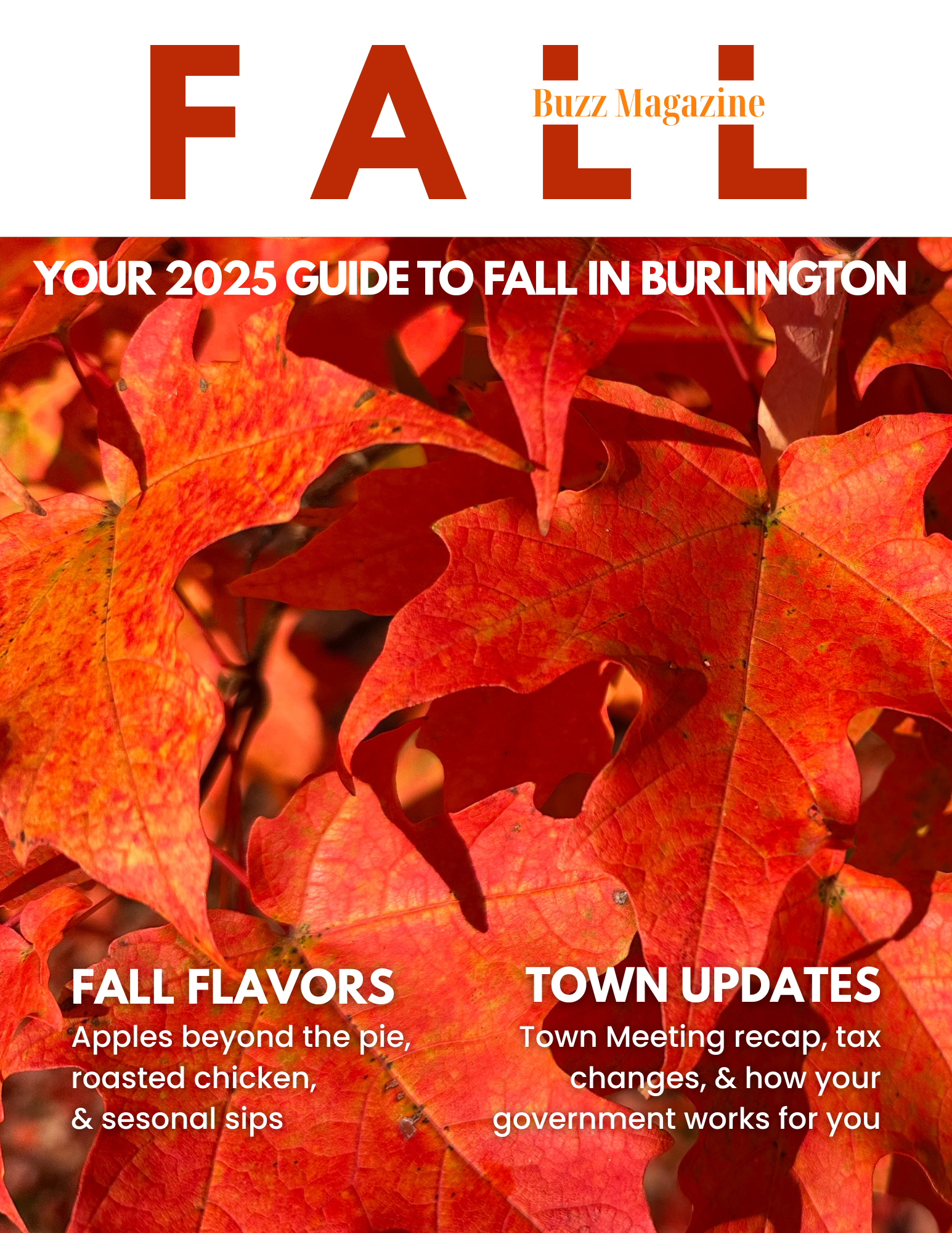Letting Leaves Pile Up Can Benefit Your Yard and the Ecosystem

While autumn leaves are often seen as a nuisance, they harbor a rich variety of creatures that support a healthy, thriving ecosystem right in your backyard.
Many insect species overwinter on the ground, like beetles, ants, and snails – which provide food for bird populations – and fireflies, those special summer visitors that are at risk of being endangered due to pesticide usage and habitat loss.

This story was featured in our Fall Magazine
Read our magazine today for your guide to thriving this season in Burlington.
While leaf litter on your lawn is good for the critters, leaves blocking storm drains can be detrimental to private property and to the natural waterways that crisscross our town.
Accumulated leaf litter on storm drains can block melting snow and stormwater runoff, causing flooding; the phosphorus it contains, while beneficial to soil and insects, can also be a source of pollution when left to seep into the waterway.

Here are just a few creatures that overwinter under the leaves and would not survive without proper shelter. You’ll notice all of these are (or grow into) pollinators that keep our gardens and food supply healthy!

The hummingbird clearwing moth (often confused for a hummingbird!) buries in ground as a hard-shell pupa.

The queen bumblebee emerges from leaf cover in the spring to start a new colony.

Caterpillars of the great spangled fritillary hatch in the fall and go to sleep without feeding.

The woolly bear freezes solid to survive the winter before becoming an Isabella tiger moth.
And there's more — nature’s flood control
Homeowners often opt to cut down trees that shed a lot of needles and leaves.
If you’re not yet convinced that trees and leaves are your friend, consider this: A single mature tree can remove 100 gallons of water a day or more from your property.
That means less water to flood your yard, garden, and basement.
Trees also provide the benefit of natural cooling in your recreational space, plus those leaves and needles can be raked into a great natural mulch!





